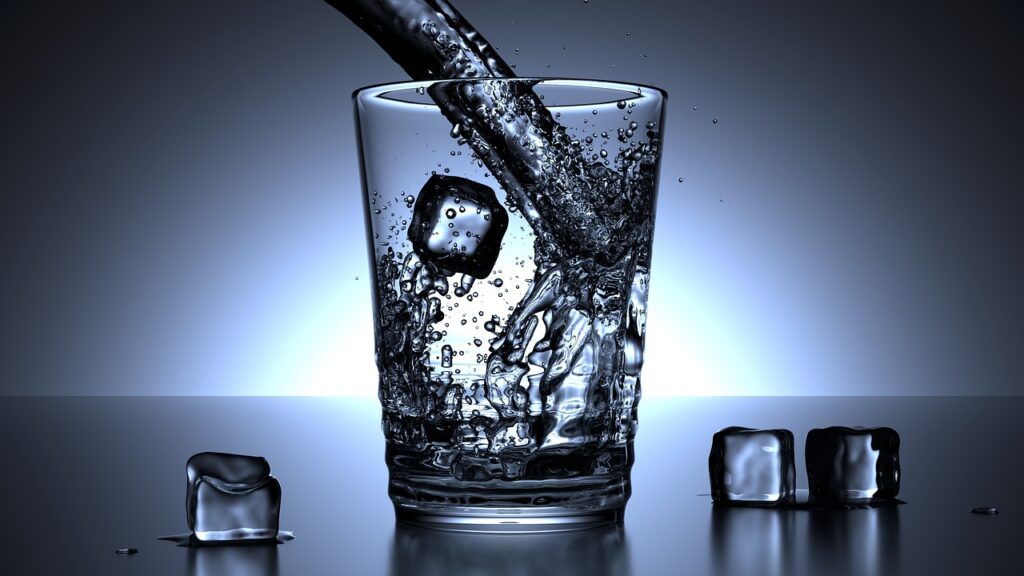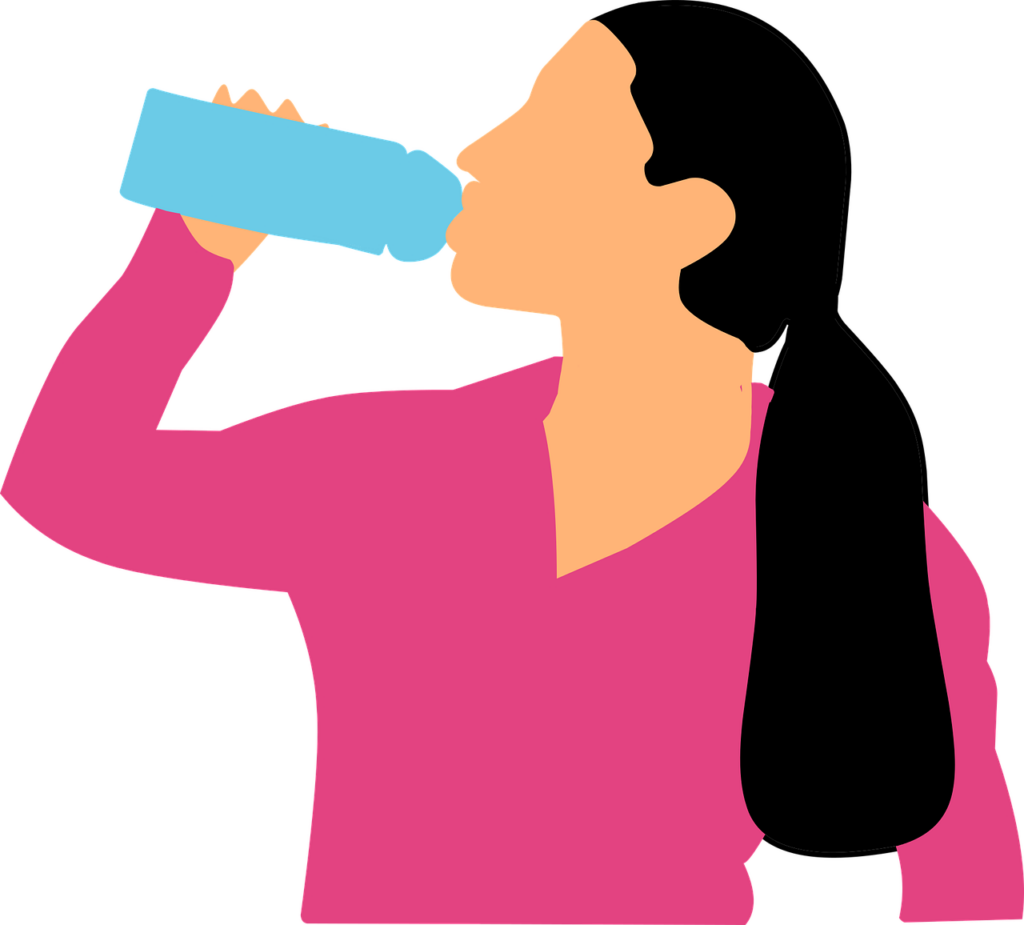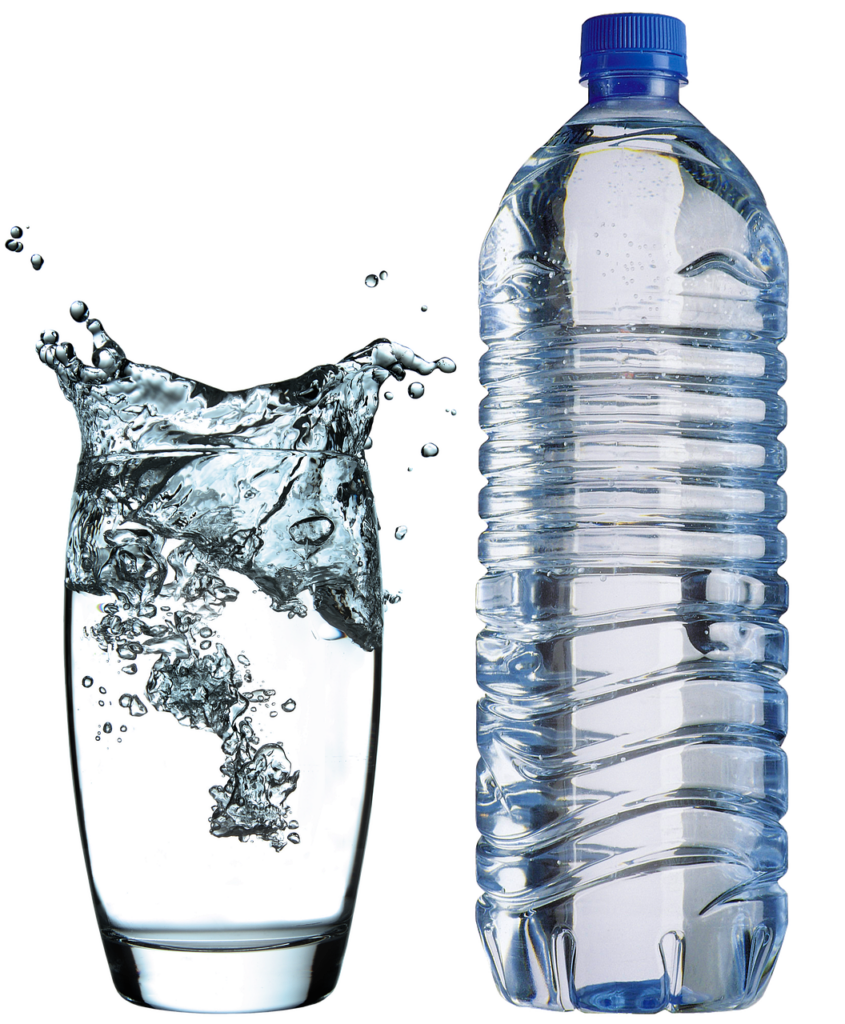Overhydration is a condition where there is a disproportion of electrolytes, particularly low sodium levels, in the blood. This lopsidedness upsets the common working of cells and can have serious results.
Choosing the ideal extent of water to drink can be trying a direct result of individual vacillation in hydration needs. Factors, for instance, body size and sythesis, activity level, climate and natural conditions, age, and prosperity status can impact hydration needs. For example, children, young people, and more prepared adults might have different hydration needs stood out from energetic adults as a result of differences in body size, metabolic rate, and kidney capacity.
Drinking Too Much water intake can dilute the concentration of essential minerals, such as sodium, potassium, and magnesium, in the bloodstream, leading to an electrolyte imbalance, particularly hyponatremia. This occurs when the body’s ability to excrete water exceeds its capacity,
causing a decrease in sodium concentration. Severe cases can cause confusion, seizures, coma, and even death. Electrolyte imbalances from excessive water intake are more common in extreme cases of overhydration, such as endurance athletes. The body has mechanisms to regulate water and electrolyte balance to maintain homeostasis. To maintain optimal health, it’s crucial to strike a balance between water intake and electrolyte consumption. A varied diet rich in electrolyte-containing foods, along with adequate hydration, can support electrolyte balance and overall well-being. Consulting a healthcare professional or registered dietitian for personalized guidance and recommendations is recommended.

Water is a vital component of maintaining optimal health and plays a crucial role in nutrient transportation. It serves as a solvent for nutrients, allowing them to be easily transported throughout the body. Blood, primarily composed of water, acts as the primary transportation system for nutrients, carrying them to tissues and organs for proper functioning. Water also facilitates digestion and absorption in the gastrointestinal tract, breaking down food particles and aiding in the absorption of nutrients across the intestinal lining into the bloodstream. Without adequate water intake, these processes may be impaired, leading to deficiencies in essential nutrients.
Once nutrients are absorbed into the bloodstream, they are transported to individual cells throughout the body, ensuring they receive the necessary nutrients for essential functions like energy production, repair, and growth. Water also plays a role in regulating body temperature, indirectly impacting nutrient transportation. Adequate hydration is necessary to replenish lost fluids and maintain optimal body temperature, ensuring nutrient transportation processes are not compromised.
Tissue hydration is essential for maintaining the integrity and function of cells, tissues, and organs. Dehydration can lead to decreased blood volume and circulation, impairing the transportation of nutrients to cells. Therefore, adequate hydration is crucial for supporting these processes and promoting optimal health and well-being.
Contents
- 1 Understanding Hydration
- 2 Potential Risks of Overhydration
- 3 Water’s Effect on Nutrient Absorption:Overhydration
- 4 The Relationship Between Water Intake and Nutrient Balance
- 5 Factors Affecting Nutrient Loss:Overhydration
- 6 Scientific Studies and Findings
- 7 Expert Opinions
- 8 Practical Tips for Optimal Hydration
- 9 Conclusion
- 10 FAQs
Understanding Hydration
Dehydration is a condition where the body loses more water than it takes in, leading to an imbalance in fluid levels. Factors influencing individual hydration needs include inadequate fluid intake, excessive fluid loss, environmental factors like hot and humid weather, high altitudes, and intense physical activity, and medical conditions like diabetes, kidney disease, and gastrointestinal disorders.
Determining the right amount of water to drink can be challenging due to individual variability in hydration needs. Factors such as body size and composition, activity level, climate and environmental conditions, age, and health status can affect hydration needs. For example, infants, children, and older adults may have different hydration needs compared to young adults due to differences in body size, metabolic rate, and kidney function.

General guidelines for maintaining proper hydration include drinking fluids regularly throughout the day, paying attention to thirst, monitoring urine color, considering environmental factors, and consulting with healthcare professionals. Drinking water and other fluids throughout the day, especially during meals and physical activity, is essential to prevent dehydration. Paying attention to thirst is the body’s natural signal for fluid intake, and pale or clear urine usually indicates adequate hydration.
In addition, considering environmental factors, such as hot weather, high altitudes, or intense physical activity, can increase fluid intake to compensate for increased fluid loss. Consulting with healthcare professionals is recommended for individuals with specific medical conditions or unique hydration needs. By staying mindful of these factors and adopting healthy hydration habits, individuals can support overall health and well-being.
Potential Risks of Overhydration
Hyponatremia is a condition where there is an imbalance of electrolytes, particularly low sodium levels, in the blood. This imbalance disrupts the normal functioning of cells and can have serious consequences. Overhydration, especially with water or low-sodium beverages, dilutes sodium levels in the blood, leading to symptoms such as nausea, vomiting, headache, confusion, seizures, and in severe cases, coma or death.
Risk factors for hyponatremia include endurance sports, heart failure, liver disease, and kidney disorders that affect fluid and electrolyte balance. Treatment depends on the severity of symptoms and underlying causes. In mild cases, reducing fluid intake may be sufficient, while in more severe cases, intravenous fluids with electrolytes or medications may be necessary. Treatment should be administered under medical supervision to prevent complications.

Prevention involves maintaining a balance between fluid intake and electrolyte consumption, especially during prolonged physical activity or in hot environments. Consuming sports drinks or electrolyte solutions during intense exercise can help replace lost sodium and other electrolytes. Paying attention to fluid intake, especially during endurance activities, and being aware of signs and symptoms of hyponatremia are essential for prompt recognition and treatment.
Individual factors, such as sweat rate, sodium losses, and overall health status, should also be considered when determining fluid and electrolyte needs. Consulting with healthcare professionals is recommended, especially if engaging in endurance sports or having underlying medical conditions that may affect fluid balance.
In conclusion, staying hydrated is crucial for overall health, but avoiding overhydration and maintaining a balance of fluids and electrolytes is equally important. Awareness of individual hydration needs and practicing healthy hydration habits can help mitigate the risk of hyponatremia.
Water’s Effect on Nutrient Absorption:Overhydration
Drinking water is not a myth that flushes out vitamins and minerals from the body. It plays a crucial role in nutrient absorption, aiding in digestion, absorption, and transportation of nutrients throughout the body. Water breaks down food particles, aids in the breakdown of carbohydrates, proteins, and fats, and serves as a solvent for nutrients. When dissolved in water, these nutrients are more readily absorbed by the body through the intestinal lining into the bloodstream.

Once absorbed, water helps transport nutrients throughout the body via the bloodstream, where they are utilized for energy production, growth, repair, and other essential functions. Proper hydration is essential for maintaining the integrity and function of cells, including those involved in nutrient absorption and utilization. Water also regulates the body’s pH balance, which is essential for optimal enzyme function and nutrient absorption.
Preventing constipation is another benefit of water. Adequate hydration softens stool and promotes regular bowel movements, which is important for overall digestive health and efficient absorption of nutrients from food. In summary, water is essential for nutrient absorption, digestion, and transportation, and should be viewed as a vital component of a balanced diet.
The Relationship Between Water Intake and Nutrient Balance
Maintaining a balance between water intake and nutrient absorption is crucial for overall health. Excessive water consumption can dilute electrolytes, leading to imbalances and adverse effects on health. Optimal nutrient absorption requires a balance between water intake and nutrient-rich foods, as water facilitates the digestion and absorption of nutrients from food. Adequate hydration is essential for maintaining overall health and well-being, as it regulates body temperature, transports nutrients and oxygen to cells, lubricates joints, and supports metabolic processes.

The body has a sophisticated thirst mechanism that signals when it needs fluids, prompting individuals to drink water to maintain proper hydration levels. Kidney function plays a crucial role in regulating fluid and electrolyte balance, adjusting urine concentration and volume based on hydration status to prevent dehydration or overhydration. Electrolyte regulation is tightly regulated through mechanisms such as hormonal signaling and kidney function.
A varied diet rich in fruits, vegetables, whole grains, lean proteins, and healthy fats ensures adequate intake of essential nutrients. Micronutrient intake is essential for optimal health and well-being, and many whole foods provide electrolytes like potassium, magnesium, and calcium. Consuming these foods alongside adequate hydration helps maintain electrolyte balance in the body.
In summary, maintaining a balance between water intake and nutrient absorption is essential for overall health. The body has mechanisms in place to regulate water and nutrient levels, and a varied diet rich in nutrient-dense foods ensures adequate intake of essential nutrients while supporting proper hydration and electrolyte balance.
Factors Affecting Nutrient Loss:Overhydration
The body’s ability to absorb and retain nutrients is influenced by various factors, including dietary choices, medications, underlying health conditions, lifestyle factors, and individual differences. Dietary components can affect the absorption of specific nutrients, such as calcium and vitamin C. A balanced diet with nutrient-rich foods can help mitigate these interactions. High-fiber diets can also help maintain overall nutrient balance by binding to minerals like calcium, magnesium, and zinc.
Medications, such as antibiotics and proton pump inhibitors (PPIs), can reduce stomach acid production, which is necessary for nutrient absorption. Prolonged antibiotic use may lead to deficiencies in vitamins like vitamin K and certain B vitamins. Cholesterol-lowering drugs can interfere with fat-soluble vitamins absorption.
Gastrointestinal disorders, such as celiac disease and inflammation-related bowel disease (IBD), can cause malabsorption of nutrients due to inflammation and damage to the intestinal lining. Lifestyle factors, such as excessive alcohol consumption and chronic stress, can also interfere with nutrient absorption and metabolism.

Individual factors, such as age and genetics, can also impact nutrient absorption and metabolism. Aging can affect digestive function and nutrient absorption, while genetic variations may have increased or decreased requirements for specific nutrients.
Being mindful of these factors and making informed dietary and lifestyle choices can optimize nutrient absorption and support overall health and well-being. Consulting with healthcare professionals or registered dietitians can provide personalized guidance for addressing nutrient absorption issues related to specific health conditions or medications.
Scientific Studies and Findings
The relationship between water consumption and nutrient retention has been the subject of numerous studies, with various findings. Some studies suggest that excessive water intake may lead to electrolyte imbalances, as it dilutes electrolyte levels in the body, disrupting their balance. However, these imbalances are typically rare and more commonly associated with extreme cases of overhydration, such as in endurance athletes who consume large volumes of water without replenishing electrolytes lost through sweating.
Other research has found no significant impact of moderate water consumption on nutrient levels. Optimal hydration may support nutrient absorption and utilization by aiding in digestion and facilitating the transport of nutrients throughout the body. Maintaining a balanced diet and staying hydrated are essential for optimal health. While excessive water intake may pose risks of electrolyte imbalances in certain situations, these risks can be mitigated by consuming a varied diet that includes electrolyte-rich foods and beverages.
Health organizations like the Institute of Medicine (IOM) and the World Health Organization (WHO) provide guidelines for adequate fluid intake based on individual needs, environmental factors, and activity levels. Dietary recommendations emphasize the importance of consuming a balanced diet that includes a variety of nutrient-dense foods, such as fruits, vegetables, whole grains, lean proteins, and healthy fats.
Individual hydration needs and responses to water intake may vary based on factors such as age, weight, gender, activity level, and environmental conditions. Listening to the body’s thirst cues and maintaining a balance between fluid intake and output is key.
Expert Opinions
Achieving a balance between water intake and nutrient absorption is crucial for maintaining optimal health. Water plays a vital role in maintaining proper hydration, regulating body temperature, transporting nutrients and oxygen to cells, lubricating joints, and supporting digestion and metabolism. Adequate hydration also aids in nutrient absorption, as water dissolves nutrients from food, facilitating their absorption in the gastrointestinal tract.
Nutrient-dense foods are essential for providing vitamins, minerals, antioxidants, and other nutrients necessary for overall health and proper functioning of the body. Consuming a diverse range of these foods ensures that the body receives the full spectrum of nutrients it needs to thrive. A balanced diet that includes fruits, vegetables, whole grains, lean proteins, and healthy fats helps prevent nutrient deficiencies and supports optimal health.
Nutrients often work synergistically in the body, enhancing each other’s absorption and effectiveness. For example, vitamin C enhances iron absorption from plant-based foods, while vitamin D facilitates calcium absorption from the gut. However, extreme practices such as excessive water fasting or drinking excessive amounts of water can disrupt electrolyte balance and potentially harm health.

It is important to recognize that individual hydration needs and responses to water intake may vary based on factors such as age, weight, gender, activity level, and environmental conditions. Extreme water intake practices should be avoided, and hydration should be approached in a balanced and mindful manner.
In conclusion, striking a balance between water intake and nutrient absorption is essential for maintaining optimal health. Consuming a diverse range of nutrient-dense foods is equally important, and avoiding extreme water intake practices can help maintain electrolyte balance and overall health.
Practical Tips for Optimal Hydration
To ensure adequate hydration and nutrient intake, follow these tips:
- Drink water throughout the day: Water is essential for maintaining hydration and supporting bodily functions. Regularly drink water before, during, and after physical activity, meals, and throughout the day. Individual hydration needs vary based on factors such as age, weight, activity level, and environmental conditions. Listen to your body’s thirst cues and adjust water intake accordingly.
- Monitor urine color: Urine color can serve as an indicator of hydration status. Pale or light-colored urine typically indicates adequate hydration, while dark-colored urine may signal dehydration. Check urine color regularly throughout the day, especially after waking up in the morning and before bedtime.
- Incorporate hydrating foods: Fruits, vegetables, and soups are rich in water content and provide essential vitamins, minerals, antioxidants, and fiber. Include a variety of hydrating foods in your diet.
- Limit sugary and caffeinated beverages: Excessive consumption of these beverages can contribute to dehydration due to their diuretic effects. Moderately limit intake and opt for water or other hydrating alternatives.
- Be mindful of individual hydration needs: Consider factors such as age, weight, gender, activity level, and environmental conditions when determining hydration needs. Adjust water intake accordingly during hot or humid weather, intense physical activity, illness, or other situations that may increase fluid loss.
Conclusion
Maintaining a balance between water intake and nutrient absorption is crucial for overall health and well-being. Excessive water intake can lead to electrolyte imbalances, particularly hyponatremia, where sodium levels become dangerously low. However, this risk is relatively low under normal circumstances and typically occurs in extreme cases of overhydration.
Water plays a critical role in facilitating the digestion, absorption, and transportation of nutrients throughout the body, and maintaining proper hydration supports these processes. Strategies for balance include listening to your body’s thirst cues, eating a varied diet, monitoring hydration status, and limiting excessive water intake.
Listening to your body’s signals, consuming a diverse range of nutrient-dense foods, and monitoring hydration status are essential for meeting the body’s nutritional needs. Pale or light-colored urine indicates adequate hydration, while dark-colored urine may signal dehydration.
Limitting excessive water intake, especially in a short period, is crucial. Instead, spread out water intake throughout the day and be mindful of individual hydration needs based on factors such as age, weight, activity level, and environmental conditions.
In conclusion, while excessive water intake can pose risks of electrolyte imbalances, it is essential to recognize that water is essential for supporting overall health and well-being. By listening to your body’s signals, consuming a varied diet rich in nutrients, and staying adequately hydrated, individuals can promote optimal health and vitality.
FAQs
1.What are the signs of overhydration?
Overhydration can manifest as symptoms such as nausea, headache, confusion, and swelling, particularly in the hands, feet, and ankles.
2. Can drinking too much water lead to vitamin deficiencies?
While excessive water consumption may dilute electrolytes in the body, leading to imbalances, it does not directly cause vitamin deficiencies.
3. How much water should I drink daily?
The recommended daily water intake varies depending on factors such as age, weight, activity level, and climate. As a general guideline, aim to drink at least eight 8-ounce glasses of water per day.
. 4.Are there any health risks associated with dehydration?
Dehydration can lead to symptoms such as fatigue, dizziness, dry mouth, and decreased urine output. Severe dehydration can be life-threatening if left untreated.
5. What are some alternative ways to stay hydrated besides water?
In addition to water, you can stay hydrated by consuming hydrating foods such as fruits, vegetables, yogurt, and soup. Electrolyte-rich beverages such as coconut water and sports drinks can also help replenish lost fluids.
—

